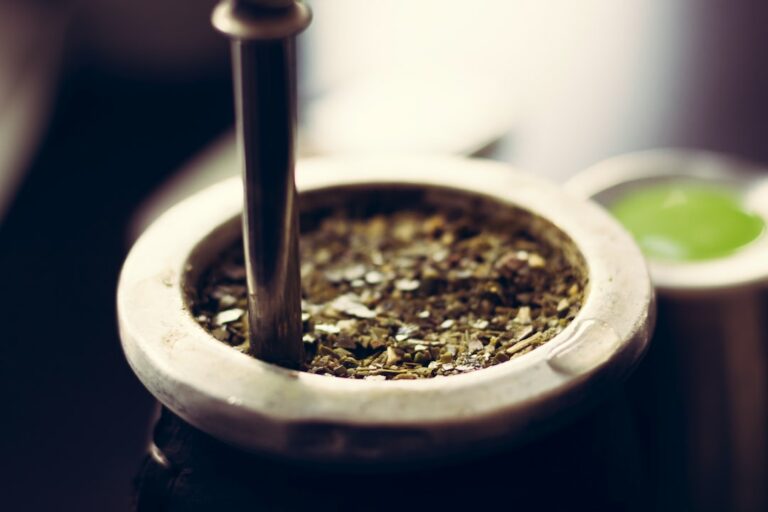Introduction
What is Vitamin C?
Vitamin C, also known as ascorbic acid, is a water-soluble vitamin that is essential for the growth, development, and repair of body tissues. It plays a crucial role in the formation of collagen, a protein that helps in wound healing, and the maintenance of healthy bones, teeth, and blood vessels. Vitamin C is also a powerful antioxidant that helps protect the body against damage caused by harmful free radicals. It is found in various fruits and vegetables, such as oranges, strawberries, kiwi, bell peppers, and broccoli.
What is Vitamin B12?
Vitamin B12, also known as cobalamin, is an essential nutrient that plays a crucial role in the formation of red blood cells and the proper functioning of the nervous system. It is naturally found in animal products such as meat, fish, eggs, and dairy. However, for individuals following a vegan or vegetarian diet, obtaining sufficient amounts of vitamin B12 can be challenging. Fortunately, there are natural remedies for health that can help boost vitamin B12 levels, such as consuming fortified plant-based foods, taking B12 supplements, or using nutritional yeast. These options provide viable alternatives for those looking to maintain optimal vitamin B12 levels without relying solely on animal-based sources.
Importance of Vitamin C and B12
Vitamin C and B12 are both essential nutrients that play crucial roles in maintaining overall health. Vitamin C, also known as ascorbic acid, is a powerful antioxidant that helps protect cells from damage, supports the immune system, and aids in the absorption of iron. B12, on the other hand, is necessary for the production of red blood cells, proper nerve function, and DNA synthesis. Both vitamins are important for energy production and maintaining a healthy metabolism. In the natural medicine series, we explore the relationship between vitamin C and B12 and address the question of whether vitamin C can destroy B12.
Interaction between Vitamin C and B12
Can Vitamin C destroy B12?
Vitamin C and B12 are both essential nutrients for the human body. However, there is a common misconception that vitamin C can destroy B12. This belief stems from the fact that vitamin C can interfere with the absorption of B12 in certain circumstances. While it is true that high doses of vitamin C can reduce the amount of B12 available for absorption, this effect is minimal and unlikely to cause a deficiency in most individuals. In fact, the benefits of vitamin C far outweigh any potential negative effects on B12 levels. It is important to note that vitamin C and B12 are not antagonistic but rather play complementary roles in maintaining overall health. Therefore, there is no need to worry about vitamin C destroying B12 when consumed in appropriate amounts.
How does Vitamin C affect B12 absorption?
Vitamin C plays a crucial role in the body’s overall health and well-being. However, when it comes to B12 absorption, there are some important considerations to keep in mind. Vitamin C has been found to interfere with the absorption of B12 in the digestive system. This means that if you take high doses of vitamin C supplements, it could potentially lead to a deficiency in B12. It is important to note that this interference is not significant enough to cause a deficiency in individuals who consume a balanced diet with adequate B12 intake. However, for individuals who rely heavily on vitamin C supplements or have a limited intake of B12-rich foods, it is recommended to monitor their B12 levels and consult with a healthcare professional if necessary.
Does Vitamin C interfere with B12 metabolism?
Vitamin C does not interfere with B12 metabolism.
Research Studies

Studies on the interaction between Vitamin C and B12
There have been several studies conducted to investigate the interaction between Vitamin C and B12. One of the key areas of interest is the potential impact of Vitamin C on B12 levels in the body. While Vitamin C is known for its many health benefits, there is no evidence to suggest that it destroys B12. In fact, Vitamin C is actually necessary for the proper absorption and utilization of B12. Some studies have even suggested that Vitamin C supplementation may be beneficial for individuals with B12 deficiency. It is important to note that Vitamin C and B12 are both essential nutrients that play important roles in maintaining overall health and well-being. Therefore, it is recommended to ensure an adequate intake of both vitamins through a balanced diet or supplementation. Additionally, it is worth mentioning that Vitamin C and B12 have been studied in relation to various health conditions, including depression. While more research is needed, some studies have suggested a potential link between Vitamin C, B12, and depression. It is also worth exploring the potential benefits of herbal supplements that contain Vitamin C and B12 for individuals experiencing depression. Overall, further research is needed to fully understand the complex interaction between Vitamin C, B12, and various health conditions, including depression and the use of herbal remedies.
Findings of the studies
Several studies have been conducted to investigate the relationship between vitamin C and vitamin B12. The findings of these studies have provided valuable insights into the potential impact of vitamin C on vitamin B12 levels. One study found that high doses of vitamin C may interfere with the absorption of vitamin B12 in the body. Another study suggested that vitamin C supplementation may be beneficial for individuals with vitamin B12 deficiency. However, more research is needed to fully understand the effects of vitamin C on vitamin B12 levels. Overall, it is important to consider the potential interactions between vitamin C and vitamin B12 when making dietary choices or considering supplementation.
Implications of the research
The research on the interaction between vitamin C and B12 has significant implications for individuals concerned about their nutritional health. It is important to understand that vitamin C does not destroy B12, but rather affects its absorption in the body. Vitamin C plays a crucial role in the production of collagen, a protein that is essential for the health of connective tissues, skin, and blood vessels. Additionally, vitamin C is known for its antioxidant properties, which help protect the body against damage from free radicals. While vitamin C is beneficial for overall health, it is important to ensure a balanced intake of nutrients, including B12, to support optimal functioning of the body.
Recommended Intake of Vitamin C and B12

Daily recommended intake of Vitamin C
The daily recommended intake of Vitamin C varies depending on factors such as age, sex, and overall health. However, the general guideline for adults is to consume between 75 and 90 milligrams per day. Vitamin C is an essential nutrient that plays a crucial role in the body’s immune function, collagen production, and iron absorption. It is commonly found in fruits and vegetables, such as oranges, strawberries, and broccoli. Consuming an adequate amount of Vitamin C can help support a healthy immune system and promote overall well-being.
Daily recommended intake of Vitamin B12
Vitamin B12 is an essential nutrient that plays a crucial role in maintaining the health of our nervous system and the production of red blood cells. It is important to ensure that we meet the daily recommended intake of Vitamin B12 to prevent deficiencies and promote overall well-being. The recommended daily intake of Vitamin B12 varies depending on age and other factors, but for most adults, the recommended amount is 2.4 micrograms. It is worth noting that certain factors can affect the absorption of Vitamin B12, such as age, digestive disorders, and the use of certain medications. Therefore, it is advisable to consult with a healthcare professional to determine the appropriate daily intake of Vitamin B12 for your specific needs.
Balancing Vitamin C and B12 intake
Vitamin C and B12 are both essential nutrients that play important roles in maintaining overall health. Balancing the intake of these two vitamins is crucial for optimal well-being. Vitamin C is known for its antioxidant properties and its ability to boost the immune system. It helps in the formation of collagen, promotes wound healing, and supports the absorption of iron. On the other hand, B12 is necessary for the production of red blood cells, DNA synthesis, and proper nerve function. It also helps in converting food into energy. While both vitamins have their own unique benefits, it is important to strike a balance between their intake to ensure their optimal utilization by the body.
Conclusion
Summary of the article
Vitamin C and vitamin B12 are both essential nutrients that play important roles in the body. Vitamin C is known for its antioxidant properties and its ability to support the immune system. On the other hand, vitamin B12 is necessary for the production of red blood cells and the proper functioning of the nervous system. There has been some speculation about whether vitamin C can destroy vitamin B12 in the body. However, current research suggests that vitamin C does not have a significant impact on vitamin B12 levels. It is important to maintain a balanced diet that includes both vitamin C and vitamin B12 to ensure optimal health.
Key takeaways
Vitamin C and B12 are both essential nutrients for the proper functioning of the human body. However, there is a common misconception that vitamin C can destroy B12. This is not entirely accurate. While vitamin C can interfere with the absorption of B12 from supplements, it does not have the same effect on B12 from natural food sources. Therefore, it is important to obtain B12 from natural remedies such as animal products, fortified foods, or B12 supplements that are specifically designed to be taken with vitamin C. By ensuring a balanced intake of both vitamin C and B12, individuals can support their overall health and well-being.
Final thoughts
Vitamin C and B12 are both essential nutrients that play important roles in the body. While vitamin C is well-known for its immune-boosting properties and antioxidant effects, there has been some concern about its potential to destroy B12. However, current research suggests that vitamin C does not directly destroy B12. In fact, vitamin C may even enhance the absorption of B12 in the body. It is important to note that vitamin C and B12 are both water-soluble vitamins, meaning they are not stored in the body and need to be obtained through diet or supplementation. Therefore, it is crucial to maintain a balanced diet that includes sources of both vitamin C and B12 to support overall health and well-being.
FAQ (Frequently Asked Questions)

Can Vitamin C and B12 be taken together?
Vitamin C and B12 are both essential nutrients that play important roles in the body. While they can be taken together, there is a common misconception that vitamin C can destroy B12. However, this is not entirely accurate. Vitamin C actually helps in the absorption of B12, ensuring that it is properly utilized by the body. It is important to note that excessive intake of vitamin C supplements may interfere with B12 absorption in some individuals. Therefore, it is recommended to maintain a balanced intake of both vitamin C and B12 through a healthy diet or under the guidance of a healthcare professional. When it comes to holistic healing, incorporating these two nutrients can provide numerous benefits for overall health and well-being.
Are there any side effects of combining Vitamin C and B12?
Combining Vitamin C and B12 does not have any significant side effects. Both vitamins are essential for the proper functioning of the body and play important roles in various bodily processes. Vitamin C is known for its antioxidant properties and is crucial for the immune system, collagen production, and iron absorption. On the other hand, B12 is necessary for the formation of red blood cells, nerve function, and DNA synthesis. When taken together, these vitamins can complement each other’s benefits and support overall health. It is worth noting that excessive intake of vitamin C supplements may cause gastrointestinal discomfort or diarrhea in some individuals. However, this is rare and usually occurs with very high doses. As always, it is recommended to consult with a healthcare professional before starting any new supplement regimen.
Should I consult a healthcare professional before taking Vitamin C and B12 supplements?
Before starting any new supplement regimen, it is always advisable to consult a healthcare professional, especially when considering the use of Vitamin C and B12 supplements. These two vitamins play crucial roles in maintaining overall health and well-being. Vitamin C is known for its immune-boosting properties and its ability to support collagen production. On the other hand, B12 is essential for proper nerve function and the formation of red blood cells. Consulting a healthcare professional can help determine the appropriate dosage of these supplements based on individual needs and health conditions. Additionally, they can provide guidance on potential interactions with other medications or existing health conditions. By seeking professional advice, individuals can ensure that they are taking the right supplements in the proper amounts to support their overall health and well-being.







































